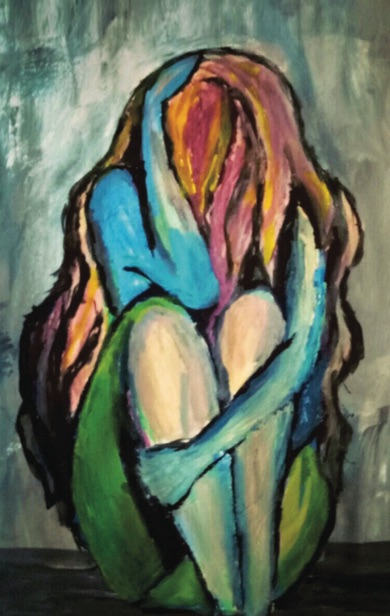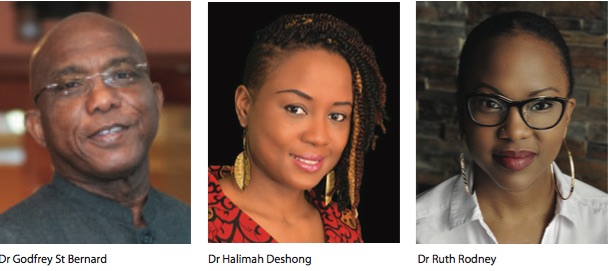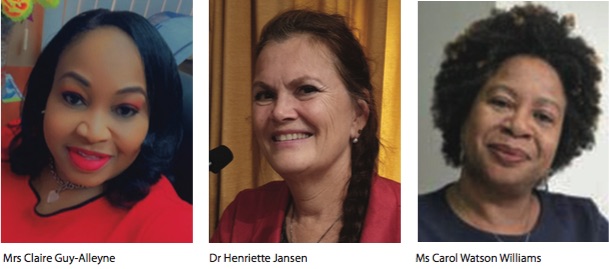The struggle in the Caribbean against gender-based violence is a huge one – at least that is what the numbers say. The region has higher than world average prevalence of intimate partner violence with Guyana topping the list at 55 percent, Suriname holding second place with 48 percent, Trinidad and Tobago third with 44 percent, and Jamaica and Grenada at 39 percent. The world average is 33.3 percent (one in three).

This disproportionate level of violence, which continues to make headlines, motivated the Sir Arthur Lewis Institute of Social and Economic Studies (SALISES) to dedicate their 10th Edition Virtual Forum to the discussion on methods to deal with this persistent issue.
“Counteracting the Scourge of Violence Against Women in Caribbean Societies: Towards Remedial Action in Response to Theory and Evidence-Informed Studies” was held on Friday July 29. The virtual forum looked at gender-based violence and provided an open space for discussion – and interrogation – of the agendas and actions geared towards treating with the problem. The event brought together a number of experts in their fields.
Speaking at the forum, Dr Godfrey St Bernard, Director of SALISES, explained that he had looked at the first 20 years of the new millennium in Trinidad and Tobago and saw 230 women die due to domestic violence, with a steady increase in homicide cases from 2011 to 2019. There is also a correlation between femicide and gun possession, he said:
“The prevalence and proliferation of guns and easy access to guns, I think we have to pay particular attention to that in terms of what impact it is having on the demise of our women due to violent episodes within domestic settings.”
So, we know there is a problem, but what exactly drives it? According to Dr Halimah DeShong, Senior Lecturer at the Institute for Gender and Developmental Studies (IGDS) at UWI Cave Hill, it is important to note that culturally most men in the studies that she has done tend to have antiquated ideas of ownership of women. They also view women in relationships giving consent to sex in perpetuity, not only in marriage, but also in common law unions.
This runs counter to the revisions in some legislations in many Caribbean states that have included references to marital rape as a crime. It is important to note however, that Caribbean women disclose violence at higher rates than other countries and, according to Dr Ruth Rodney, Assistant Professor at the School of Nursing at York University, this is mainly due to five decades of activism and advocacy by Caribbean feminists.
The groundwork laid by activists has meant fewer social barriers to disclosing, greater public recognition for women’s stories of survival, and an increased sense of connection to a community of diverse women speaking out as part of their own empowerment. This has ensured that the atmosphere for the creation of the Special Victims Department of the Trinidad and Tobago Police Service in 2020 was one that was embraced by members of the community.


Counteracting the growing issue of gender-based violence means action in many areas. We need the researchers to collate the data and make it easily understood, activists to keep creating safe spaces, legislation to improve, and community members to discard harmful belief systems.
As Mrs Claire Guy-Alleyne, Woman Superintendent (Ag) of the TTPS’s Special Victims Department, makes clear, “As a society, we need to step away from the victim blaming and the victim shaming. This can affect many victims and survivors as they may feel deterred from even coming forward to make reports, thereby causing the perpetrator to continue the abuse. Ignoring domestic violence and treating it like a private matter only ensures that the cycle of violence continues.”
The virtual also included contributions from Dr Henriette Jansen, retired Technical Advisor for the Violence Against Women (VAW) Research and Data at the United Nations Population Fund (UNFPA) Asian and the Pacific Regional Office (APRO) in Bangkok; and Ms Carol Watson Williams, Principal Consultant of re-Think Social Development Ltd.
SALISES has engaged in a very progressive agenda through its virtual forums. These discussions focus on issues affecting Caribbean societies.
Dr St Bernard recognises the important role that SALISES holds and believes that it is important “...to ensure that we do what is necessary as an academic institution to bring the discourses to the people”.
It is vital that we recognise the scourge of violence against women is occurring, but it is equally important to eradicate it all together, and SALISES is “head and shoulders to join the struggle”.